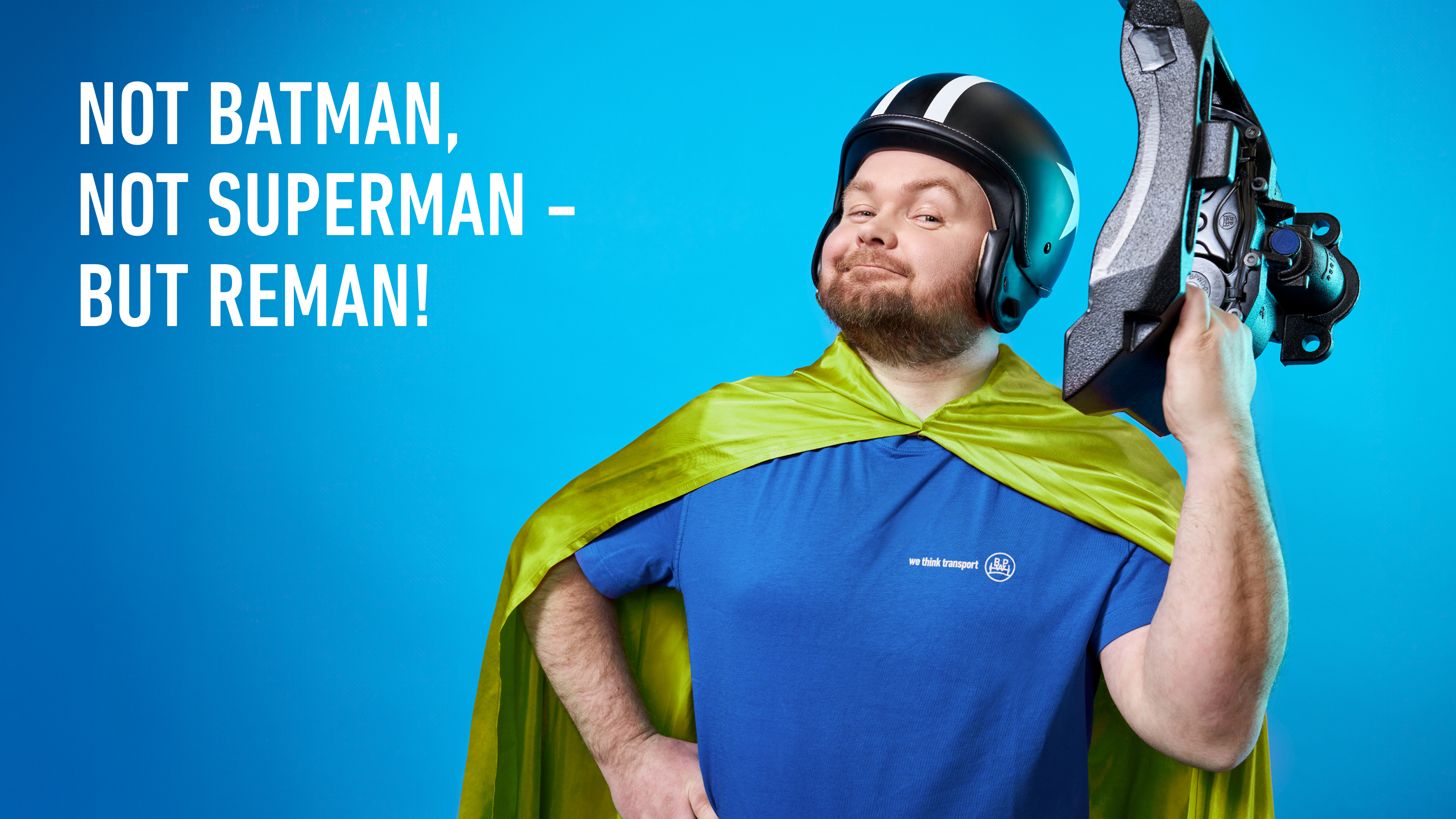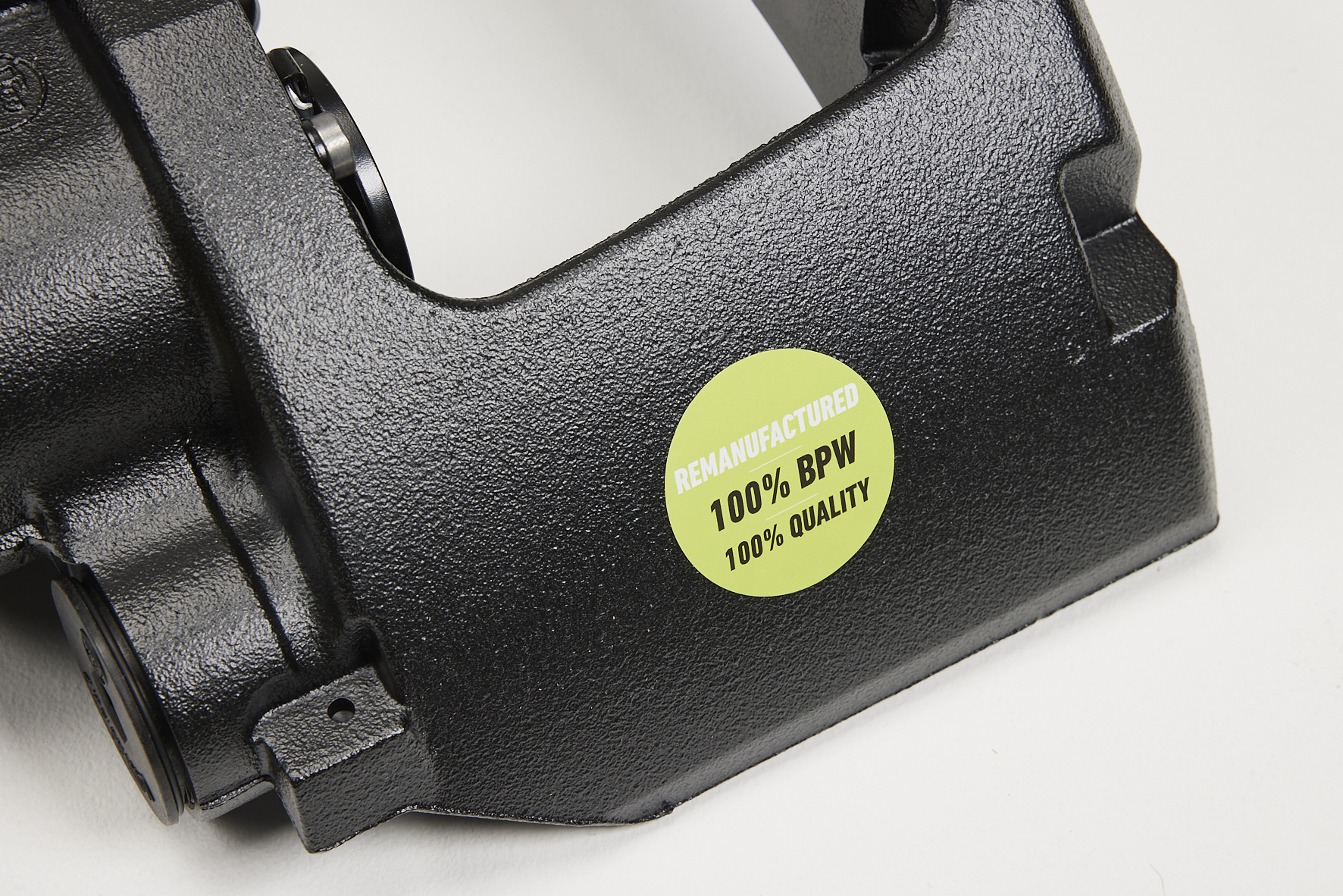Standards for remanufacturing: BPW is contributing towards DIN SPEC

- Photos: BPW
- Date: 10.06.24
Until now, fleet operators have often bought a pig in a poke with remanufactured products. Why?
There were no regulations from an independent body that objectively described the remanufacturing process and the quality requirements for industrially remanufactured products. For fleet operators, this meant a major safety risk. They had no way of assessing the properties and safe operation of a refurbished component they had purchased.
This is now changing.
Precisely. A consortium of scientific experts and selected industrial companies has launched DIN SPEC 91472 to close this gap and create the basis for a DIN standard. BPW has contributed its experience from series production and the commercial vehicle perspective.
The DIN SPEC thus describes the reconditioning process and the quality requirements for the products. How will this be recognised?
While the perceived product quality is primarily assessed by the customer, the DIN SPEC classifies the quality of the remanufacturing process and defines key figures. The processes of a company are assessed on the basis of various quality aspects and categorised into classes - these range from class C to class A. The Product Composition Circularity Indicator (PCI) is a measure of the proportion of regenerated components in the remanufactured product. The End of Use Circularity Indicator (ECI) describes the proportion of components that can be remanufactured at the end of their lifecycle. Both key figures are transparently displayed on a label for the customer.
Remanufactured products are created on the same production line as the new product
How do you ensure that the parts from the BPW Reman Line are of high quality?
We have the expertise of a new parts manufacturer and make no distinction between production of the new part and the remanufactured product. Since we also develop the components, we know exactly which processes and components are required to ensure that they meet the highest quality standards again after remanufacturing.
In essence, how does the remanufacturing process work at BPW?
After we have inspected the old products (cores), they are dismantled and cleaned. All individual parts are checked once again for their suitability. Only then do they receive approval from us for a further utilisation phase. We replace worn components with new parts. We then assemble the remanufactured product at the BPW Brake Competence Centre in Wiehl on the same IATF-certified production line as the new part. It also undergoes end-of-line testing there, and must fulfil the same requirements.

We have the expertise of a new parts manufacturer and make no distinction between production of the new part and the remanufactured product.
If a core is suitable for refurbishment, you get money back
How do you get the cores for BPW Reman Line brake callipers?
We have been selling corresponding new parts with a sell-back option for some time now. For example, if service companies dismantle a used part listed in the BPW Core Programme, they can use an online portal to register a return with us, which our logistics partner then collects. This simple process means that there is no additional work for customers. If the findings show that the core is suitable for refurbishment, the customer receives a credit note for each core to the value of the sell-back option.
How sustainable are reconditioned products?
Remanufacturing is part of the circular economy. The goal is to keep products in economic circulation in the long term. Among other things, this reduces the need for raw materials and energy compared to new production. In the case of our reconditioned disc brakes, we save around 90 per cent of resources and almost 70 per cent of energy. We can also reduce transport costs by 45 per cent. The bottom line is that the CO2 footprint is reduced by around 75 per cent.
Attract and retain cost-conscious customers with BPW Reman Line
What should a customer know about the products in the BPW Reman Line?
With the Reman Line, we are combining the economic efficiency of reconditioning with BPW's quality and safety standards for the first time. Like the new part, all BPW Reman Line products with the characteristic green data plate have a 12-month warranty and this does not affect the validity of the 5-year ECO Plus warranty. The only difference is that the service life is shorter than that of the new product. This means they meet the requirements of a repair in keeping with the current value of a high-mileage commercial vehicle. Our customers can use this offer to attract or retain cost-conscious retail customers.
Are there plans to expand the BPW Reman Line?
Yes, BPW will expand the product range over time. The next part to follow is the wheel end.


